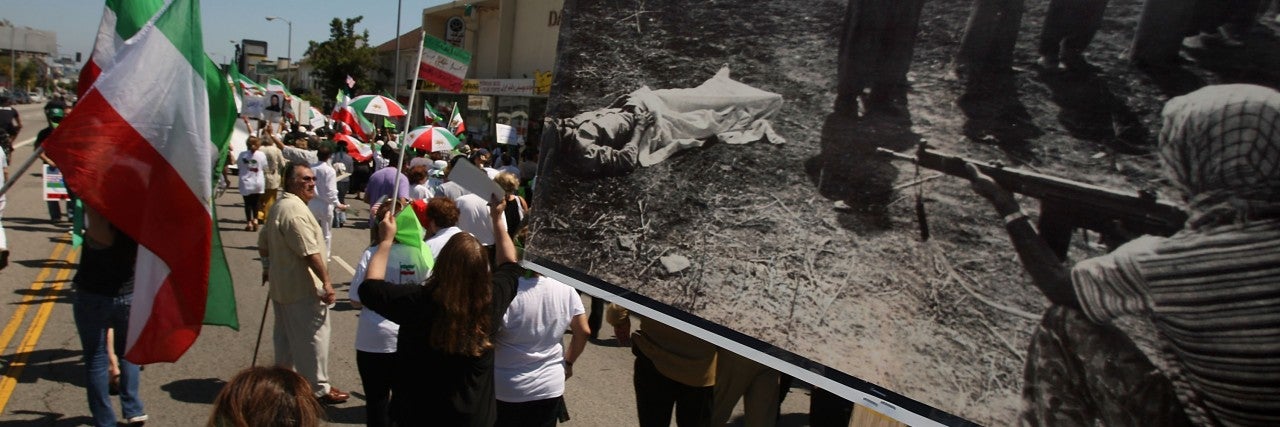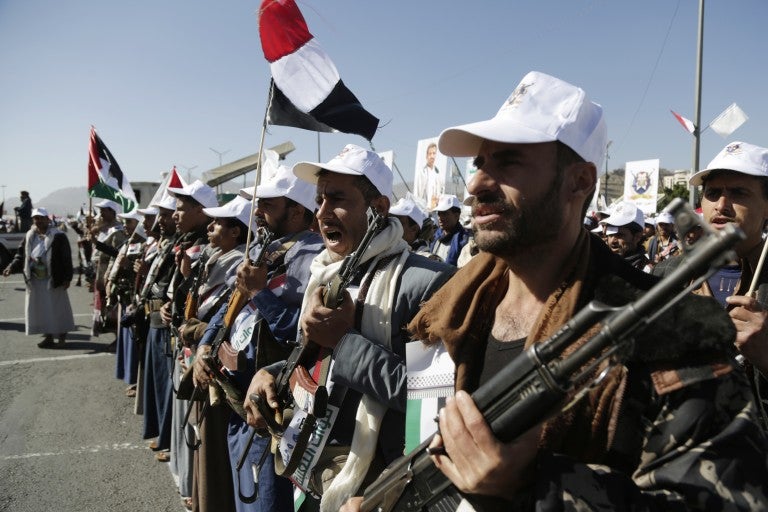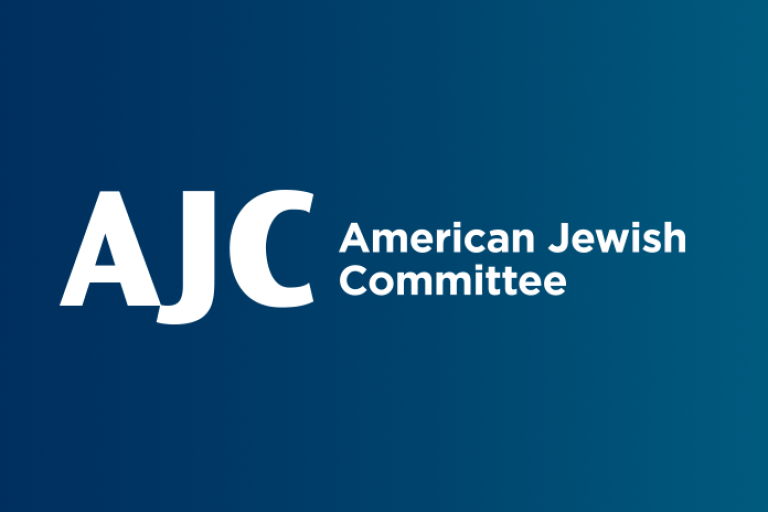August 25, 2021
This week, European and American diplomats reacted to Iran’s confirmation of a report by the International Atomic Energy Agency (IAEA) that it has increased its enrichment of weapons-grade uranium metal by calling for a return to the stalled negotiations in Vienna aimed at reviving the 2015 Joint Comprehensive Plan of Action (JCPOA).
Iran’s uranium enrichment is indeed alarming. But equally alarming is the recent inauguration of Iran’s new president, Ebrahim Raisi, a hardline cleric dubbed the “Butcher of Tehran” for his role in disappearing and executing thousands of political prisoners in 1988. In recent years, as head of Iran’s judiciary, he led a vicious human rights crackdown.
With Raisi at the helm, it is more essential than ever that diplomats seeking to reach an effective and lasting nuclear deal with Iran heed the alarm bells that Iranian human rights defenders and the UN’s independent expert on Iran have been sounding for some time. This regime is only getting worse, and its ability to make credible commitments is increasingly implausible. Improving Iran’s human rights record must be among negotiators’ top priorities as they seek to reach a credible agreement.
Their demands to Iran’s leaders must include:
-
Release the hostages.
Since its rise to power, the Iranian regime has arrested or kidnapped many citizens of Western and other countries – mostly dual nationals – to use as leverage in negotiations with foreign countries. This cruel tactic is also intended to send a warning to Iranian dual nationals abroad that the same consequences could be inflicted on them and their families should they speak out against the regime.
This “hostage diplomacy” continues today, with Iran currently imprisoning at least a dozen citizens of the U.S., United Kingdom, and other countries on espionage charges. Hostages are subjected to brutal interrogations, grotesquely unfair trials, and deplorable conditions of detention for years on end. Iran holds out the possibility to Western governments that it will release them for cash or other concessions. In some cases, Iran has tasked its proxy Hezbollah with luring targets to a third country, apprehending them, and transferring them to its custody. This abhorrent and cynical practice traumatizes not only those arbitrarily detained but their family members as well.
-
Stop persecuting Baha’is and other religious minorities.
Iran’s authorities are engaged in discriminatory practices against many religious and ethnic minorities including Sunni Muslims, Zoroastrians, Jews, and Christians. However, their persecution of the Baha’is, Iran’s largest non-Muslim religious minority, is especially alarming, and it is escalating.
Baha’is have long faced stigmatization and persecution from Iranian government officials, and many of the leaders of the Baha’i faith remain imprisoned in the country. Baha’is are also barred from serving in government or receiving a university education, and those who try to circumvent this prohibition face arrest and imprisonment. Iranian news media also incites hatred and violence against Baha’is, which has led to the vandalism and destruction of some Baha’i cemeteries.
Over the past months, worrying signs have emerged that this repressive campaign is deepening. Last year, Iran revoked and stopped issuing national ID cards to its Baha’i citizens. Earlier this year, Iran amended its criminal code in ways that effectively criminalize the mere expression of belief in the Baha’i faith, and since then several Baha’is have been sentenced to prison for doing so. Legislators in countries around the world have recognized this alarming increase in persecution of the Baha’is; the time has come for Iran to face real consequences for continuing this hate-filled campaign.
-
Afford equal rights to women and free women’s rights defenders.
Iranian diplomats may insist that their country respects women’s rights, but these claims are belied by the country’s many laws that deny women’s autonomy and right to participate in public life. The regime also persecutes women’s rights advocates who seek to change the status quo.
Iranian law requires married women to obtain their husbands’ or a prosecutor’s permission to apply for a passport and prohibits women from passing their nationality down to their children. Iran also requires women to wear headscarves (hijabs) in public and prohibits women from engaging in vaguely defined “indecent” or “immoral” activity. Those who seek to defend women’s rights have faced harsh punishment for doing so.
Iran has been holding renowned lawyer Nasrin Sotoudeh in deplorable prison conditions for several years for “encouraging corruption and prostitution” after she provided legal representation to and supported women who were arrested for removing their headscarves in public. Iranian agents attempted to kidnap the U.S.-based Iranian exile Masih Alinejad, a human rights activist and journalist kicked out of Iran nearly a decade ago for her harsh criticism of Iran’s clerical establishment and her campaign against the compulsory hijab.
-
End torture in prison.
The practice of systematic torture is rampant in Iranian prisons, with regular reports emerging of cases in which detainees have been subjected to severe beatings, suspension, electroshocks, burnings, mock executions, threats of rape, and being held incommunicado for weeks or months. No independent monitoring of prison conditions is permitted. The recent release of video footage of guards at Iran’s notorious Evin prison mercilessly beating detainees has caused Iran’s authorities to make a public claim that those responsible would be punished.
-
Stop terrorizing dissenters.
Iran’s authorities have launched vicious crackdowns in response to several mass protests in recent years, treating protesters violently, arbitrarily imprisoning and torturing thousands, and executing key individuals because of their connection to, or participation in, widespread nationwide protests – or simply for criticizing the regime on social media.
For example, in December, Iran executed journalist Rouhollah Zam for running Amad News, a popular anti-government website that Iranian authorities believed incited the 2017-18 protests by sharing videos of protests and damaging information about Iranian officials on the messaging app Telegram. In September 2020, Iranian authorities secretly executed champion wrestler Navid Afkari who was arrested after participating in a 2018 protest and who claimed that he had confessed to killing a policeman under torture. Defendants often have no legal representation in Iranian courts.
Iran also cracks down against men who seek to promote women’s equal participation in public life. For example, in 2020, Iran brought charges against musician Mehdi Rajabian and banned composer Ali Ghamsari from performing “until further notice” for planning to feature women in their future work.
-
Allow genuinely democratic elections.
Many Iranians viewed the most recent election as rigged for Ebrahim Raisi from the start. Although 600 candidates, including 40 women, threw their hats into the ring, Iran’s Guardian Council, an unelected body of jurists and theologians, disqualified all but seven men. Three of them dropped out before election day.
As soon as the roster of candidates was announced, the hashtag "No Way I Vote" started to trend on Persian social media. Less than 50 percent of Iranians voted in the election – the lowest ever in Iran.


